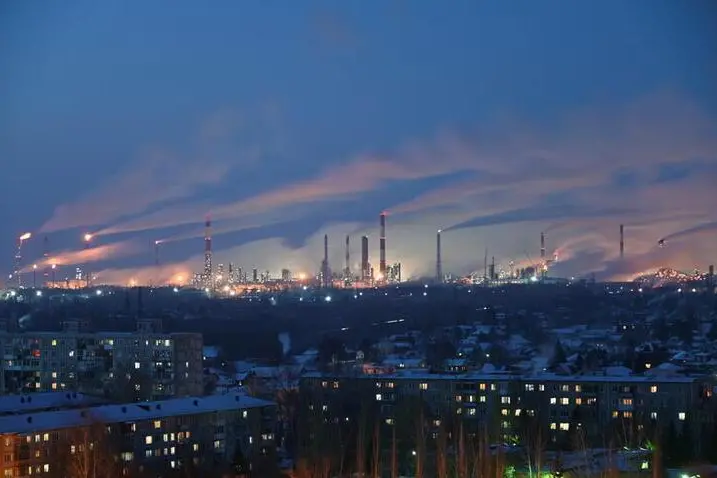PHOTO
London- Oil slipped on Thursday as investors took profits after a recent price rally, but strong demand and short-term supply disruptions continue to support prices close to their highest since 2014.
Brent crude futures were down 39 cents, or 0.4%, at $88.05 a barrel by 1006 GMT after dropping more than $1 in earlier trade. The global benchmark rose to $89.17 on Wednesday, its highest since October 2014.
U.S. West Texas Intermediate (WTI) crude futures for February delivery were down 29 cents, or 0.3%, at $86.67 a barrel after dropping nearly $1 earlier. The contract, which expires on Thursday, climbed to $87.91 on Wednesday.
The more active March WTI contract was down 15 cents, or 0.1%, at $85.65 a barrel.
"The voices of those forecasting $100 per barrel oil are getting louder by the day," said Tamas Varga at oil brokerage PVM.
Supply concerns have mounted this week after a fire temporarily halted flows through an oil pipeline running from Iraq's Kirkuk to the Turkish port of Ceyhan on Tuesday.
An attack by Yemen's Houthis on the United Arab Emirates, the third-largest producer in the Organization of the Petroleum Exporting Countries (OPEC), heightened geopolitical risks.
The market is also supported by supply shortfalls from the OPEC+ producer group comprising OPEC and allies led by Russia. The International Energy Agency (IEA) on Wednesday said that the group produced about 800,000 barrels per day (bpd) below its production targets in December.
The IEA said that while the oil market could be in a significant surplus in the first quarter of this year, inventories are likely to be well below pre-pandemic levels. The agency also upgraded its 2022 demand forecast.
A rise in U.S. oil inventories last week weighed on prices.
Crude stocks rose by 1.4 million barrels last week while gasoline inventories rose by 3.5 million barrels and distillate stocks fell by 1.2 million barrels, according to market sources citing American Petroleum Institute figures on Wednesday.
PVM's Varga said that high inflation rates and the prospect of rising interest rates represent downside risks to the oil price rally.
(Additional reporting by Naveen Thukral and Roslan Khasawneh in Singapore Editing by David Goodman) ((Rowena.Edwards@thomsonreuters.com;))





















